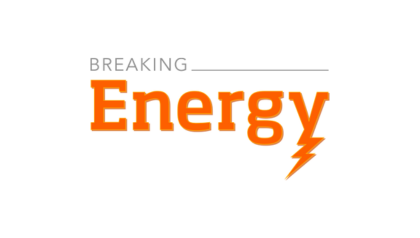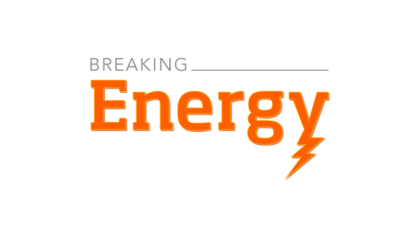
The Obama Administration is calling for continued government support of wind energy, touting a new report showing that it accounted for nearly a third of new electric capacity added in the United States last year. A report released Tuesday by the Department of Energy says the U.S.wind power industry is “facing uncertain times,” growing strongly but confronting the possibility of an expiring tax credit that would deal it a severe blow. Roughly $14 billion was invested last year in the industry, which accounted for 32% of new U.S. generating capacity, the report says. The U.S. has also become a major player on the manufacturing side, producing 67% of new wind turbine equipment used domestically last year.
Taxes
Sign up and get Breaking Energy news in your inbox.
We will never sell or share your information without your consent. See our privacy policy.
For most people the issue of corporate taxation is both intriguing and offputting in equal measure. The complex and often contradictory nature of the enormous US tax code allows for a combination of passion and boredom that extends to almost no other region of policy.
That is part of what has made attacking the US tax code in an effort to simplify it or make it reflect policy goals so challenging; companies with tax lawyers on call can take advantage of seemingly innocuous or even beneficial tax policy, only to be accused later of corruptly using ‘loopholes’ or ‘subsidies’ to run their businesses. At the same time, financiers and corporations build otherwise unsustainable business models around the tax code rather than at the intersection of supply and demand, in turn warping the very markets they intend to serve. Keep reading →
The numbers are in: New report highlights economic impact and job creation of 1603 Program: http://go.usa.gov/mnr
By Peter GardettThe numbers are in: New report highlights economic impact and job creation of 1603 Program: http://go.usa.gov/mnr ENERGY

For the tens of millions of Americans who own dividend-paying stocks – either directly, or indirectly through mutual funds, pension funds, life insurance policies, and 401(k) plans – it’s time to take notice of an important tax law that’s set to expire at the end of this year. Unless Congress acts, the maximum tax rate on dividend income is set to skyrocket from 15 percent to as high as 43.4 percent – a nearly 190 – percent increase. The top tax rate on capital gains, meanwhile, will rise from 15 percent to a maximum of 23.8 percent.
Keeping tax rates on dividend income low and on par with the tax rates on capital gains is important for all Americans. With time quickly running out on today’s tax rates, we encourage you to join a national grassroots advocacy campaign dedicated to stopping a dividend tax hike-Defend My Dividend (www.DefendMyDividend.org). The campaign is sponsored by Edison Electric Institute and a wide variety of associations, organizations, and companies who have a stake in this issue, along with the support of their members, employees, retirees, and shareholders. Keep reading →

House Republicans on Tuesday made it official: They’re proposing a $3.53 trillion budget for 2013 that would kill $55 billion in spending cuts aimed at defense and make up for them with savings elsewhere in the budget. Overall, the plan from House Budget Chairman Paul Ryan would bring in $2.73 trillion in tax revenue in 2013, compared to $3.53 in outlays, leaving next year’s deficit at just under $800 billion. After that point, annual deficits would fall significantly, reaching as low as $166 billion by 2018 but then begin to climb again. As a share of the economy, Ryan estimates that his budget would leave the debt held by the public at 62.3% of GDP, down from about 73% this year.

President Obama unveiled a $3.8 trillion budget request Monday that hikes taxes on the rich, spends new money on infrastructure and education, but does little to reform the entitlement programs that pose the biggest long-term threat to the federal budget. “We built this budget around the idea that our country has always done best when everyone gets a fair shot, everyone does their fair share and everyone plays by the same rules,” Obama said in his budget message. But the budget forecasts a deficit for fiscal year 2012 that will top $1.3 trillion, before falling in 2013 to $901 billion, or 5.5% of gross domestic product. The deficit projections, which have hovered near $1 trillion for each year of the Obama presidency, mean that Obama will not satisfy his 2009 promise to half the deficit by the end of his first term.

The US wind industry, seeking to prolong its decade-long construction boom, wants renewable energy subsidies added to any deal between Congress and the White House that extends a payroll tax cut through the rest of this year.
“This is our best chance to get this done,” says John Purcell, a vice president at Leeco Steel, a Chicago-area company that makes the steel used in wind-turbine towers. “It’s today, it’s this payroll tax cut bill.” Keep reading →

Last night the House of Representatives passed a payroll tax bill, but at the same time they took Americans’ health and safety hostage. They used a bill Congress feels it must pass to jam through two riders that would weaken protections against polluters.
One rider would allow industrial facilities to release more mercury, lead, and other toxins into the air we breathe. The other would enable the Keystone XL pipeline to go through the American Heartland without the environmental and safety review the White House deemed necessary. Keep reading →

In a press briefing on Tuesday, White House Press Secretary Jay Carney made clear that President Obama would veto a GOP-proposed payroll tax if it included a provision to accelerate the timeline of the Keystone XL pipeline.
A project of TransCanada the Keystone XL pipeline was intended to travel 1,700-kilometers from Alberta’s oil sands to the Gulf Coast in Texas to transport 700,000 barrels of oil a day. Much of the pipeline is already lying on the ground in North Dakota, waiting to be constructed. But this November, Obama delayed a decision on construction of the pipeline, pending further review and delaying it till after the 2012 presidential elections. Keep reading →
